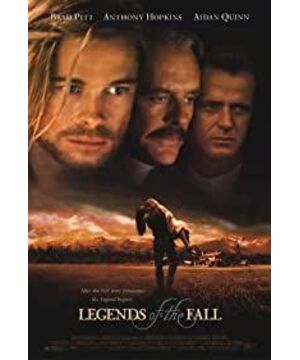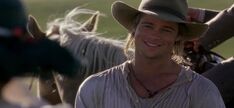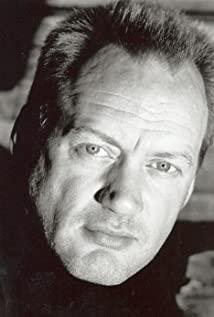The framing is beautiful but the romanticism is a little too much; the hero and heroine are also too good-looking.
Pete's revenge after Samuel's death seems to imply the revenge of the Indian-style "natural" and "wild" state against the modern mode of rationalized mechanized warfare. Pitt, of course, symbolized the "son of nature" (the grizzly bear), who traveled from the west to deeper "natural wild" places such as New Guinea; in contrast to him was the congressman's elder brother who eventually went on to modern. The heroine becomes an object of desire, contested by these two forces (she differs from Pitt's wife in that she is not "natural" in the end, but chooses the path symbolized by Boston). Of course, Pete is loved by everyone, because his outspoken and natural personality is very charismatic. It can be said that he uses this pre-modern personality charm to see the "mainstream" and "modern" petty. Big Brother's final switch is also a romantic anti-Enlightenment model—the family ethic that snatchs the individual from the construction of the modern nation-state.
But "Modern" never leaves, as the conservative old father himself is a retired colonel, and for the other two sons in the film, this is an incentive to step out of the West and into the mainstream system. That is to say, what the old father and his favorite Pete resisted was actually something that was inherent in him, brought by him and could not be dispelled. This kind of contradiction is metaphorized in the film as the core of many groups of "love but not". relational schema.
The way the colonel's family confronts is to "seek their roots" in the primitive native land of Indians, but this may be the sadness of "modern". In the end, they cannot completely escape from modernity and enter nature, so their attitude towards Indians and other nations is still not sincere enough; He couldn't accept modern times smoothly, but chose to pay for his revenge in blood - and beat modern submachine guns with primitive shotguns. This tension is the sadness of modern people, and it is reflected in the heroine's body as tearing and self-destruction.
In the end, Pete kept walking into the virgin forest deeper than the depths, forever ending up as a child of nature. Solitary resistance is fascinating, but how many such "natural places" are there?
View more about Legends of the Fall reviews











